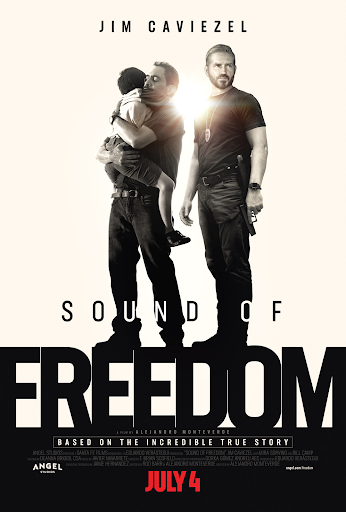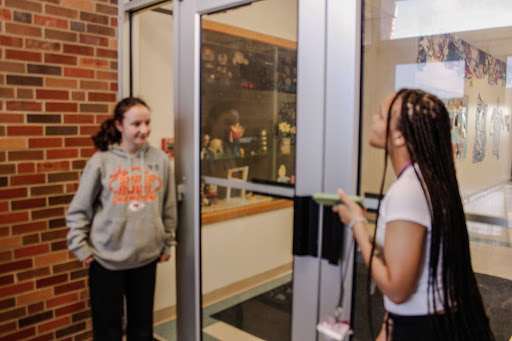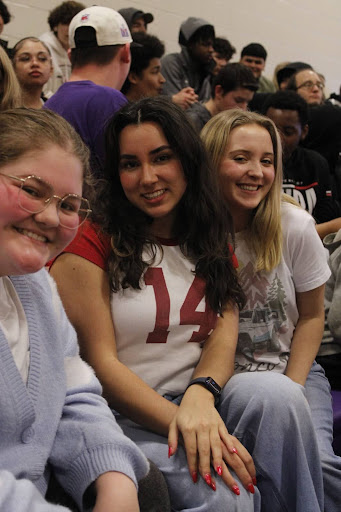We Too, Are America
Black history is not only American history, but Hickman’s too.
We often hear the quotes of Martin Luther King’s “I have a dream” speech and Rosa Parks famous quote of “no” in refusing to give up her seat. We often hear the story of Malcolm X fighting for civil rights by “any means necessary,” Langston Hughes and his blues, Maya Angelou rising like dust, and now Barack Obama screaming “yes we can!” But what about the ones we don’t know. The unsung Black heroes who have taken part in building this nation. The question raises though: why do we celebrate black history? What purpose does it serve? Some may question, why is it rarely taught in school? Or why can’t teachers teach outside of MLK and Rosa Parks? Socrates once stated “the beginning of wisdom is the defining of terms.” So this month, the beginning of wisdom is the defining of not only terms, but the digging deeper of our history. Who are these people behind the stoplight, the broom, the mop, the iron, and many of the items we use in our day to day.
If you walk around Hickman High, go to the Science and English hallways, even right outside of the Media Center, you get the good fortune to see Black History facts of figures who have made a huge contribution to our nation. Special thanks to Dana Carter, home school communicator and committee member of Black History Month at Hickman High, for making sure that each hallway is filled with features on African American people. Mrs. Carter contacts each department and gives them the opportunity to post facts, quotes, and pictures of significant African Americans of that specific subject. Additionally, there is a Black History Moment featured in the announcements every morning. Like Notorious B.I.G once said, “and if you don’t know, now you know.”
In 1926, Black History Month was created by Harvard-trained historian Carter G. Woodson. But before it was an entire month it was only one week. This week was named “Negro History Week” and was celebrated the second week of February. Woodson witnessed how African Americans were underrepresented in textbooks and conversations that shaped our American history. He, alongside with a colleague, founded the Association for the Study of Negro Life and History which is now formally known as the Association for the African American Life and History, or the ASALH. The organization promotes studying black history as a discipline and celebrating the accomplishments of African Americans. President Gerald Ford decreed Black History Month a national observance in 1976. He made a statement in saying that in celebrating Black history “we can seize the opportunity to honor the too-often neglected accomplishments of black Americans in every area of endeavor throughout our history.”
First African American to publish a book – Phillis Wheatley, an African American woman who came from Africa on a slave ship and landed in Boston, Massachusetts in 1761, when she was around eight years old. She was bought by a rich man named John Wheatley and lived with his family. She could not speak English but the Wheatley family taught her how to read and write. Wheatley in return, loved to write poetry. In her teenage years, she wrote a poem about the death of a minister, which reprinted many times and two years later published a book of her poems. Traveled to England and back, Phillis continued to write poetry and died in 1784.
First African American doctor in the US – James Derham, born a slave in 1762 in Philadelphia. His master happened to be a doctor and he worked as his assistant learning how to mix medicines and treat patients. Derham’s next two owners were also doctors and the last one in New Orleans, Louisiana paid James for being his medical assistant. By the time he turned twenty, Derham was able to by his freedom and opened up his own medicine office. Not only did he treat African American patients but whites as well. Derham gained respect as a doctor and was considered one of the best doctors in New Orleans. Despite his triumph, in 1801 the city council of New Orleans told him he could no longer practice because he did not have a medical license. He died within a few years.
First American hero of World War II – Dorie Miller, born in 1919 on a small farm outside of Waco, Texas. He spent a few years in elementary school, and then left to go to work on the family farm. In 1930, Miller decided to enlist in the Navy. In those particular days, African American sailors were only allowed to do jobs such as cook, serve food, and clean. They were given no training. When the US entered World War II December of 1941, Miller was assigned to a ship called, West Virginia. When Miller heard Japanese plans roaring overhead on the morning of December 7, 1941, he rushed to a machine gun and began firing. He shot down four enemy planes. It’s with his brave actions that made him the first not African American hero, but American hero. Dorie Miller was only 24 when he died. 30 years later a navy warship, the U.S.S Miller, was named in his honor.
First basketball player to score 100 points in a single game – Wilt Chamberlain, born as Wilton Norman Chamberlain in Philadelphia, Pennsylvania in 1936. He was one of nine children and always large for his age at 7 feet 2 inches tall. Nicknamed “Wilt the Stilt” he was an outstanding athlete in high school and participated in several sports but basketball was his main sport. In 1959, he signed up to play with the Philadelphia Warriors. In the 1961-62 season, he gained fame by becoming the first basketball player ever to score 100 points in a single game. After later trading to the Philadelphia 76ers in 1966-67 and the Los Angeles Lakers in 1972, he became the first in the National Basketball Association to score a total of 30,000 points. In 1979, he was elected to the Basketball Hall of Fame.





